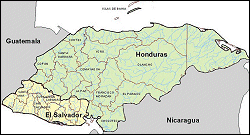
What brought you to Doctors Without Borders/Medecins Sans Frontieres (MSF)?
The interest in humanitarian work was always there, it seems, at least since my teens. It may sound corny, but the sense of justice has always felt like a core value for me, and it is deeply bound with my work in all the things I have dedicated myself to professionally.
The connection with MSF is more tenuous - it was a matter of coincidence. I had never given much thought to what I could contribute to a movement like MSF, I mean professionally. I had done a lot of interesting things and I considered myself a skilled worker, but I had no idea that it could be of any use to them.
I did not spend much time thinking when I was given my first opportunity to go off with MSF. It was not the first time I was offered a job in the humanitarian field, but to me, MSF has something that not many organizations have: the political commitment, a will to speak out and denounce that is stronger than its own interests.
Most memorable moment with MSF?
Most certainly the day when we started giving HIV drugs to our first group of patients. It felt so momentous, we had been talking about it for such a long time, I think we'd got to that point where you get a bit nervous about doing it for real, after agonizing over it for a long time. I reckon that for the Hondurans in the team, it must have felt really special.
What is your overall impression of your work in Honduras?
It is good. I feel that for everyone here, I mean patients, public health officials, other international non-governmental organizations, and ourselves of course, the results are speaking for themselves. We have kept a fairly low profile in the last eighteen months, not as a matter of policy or anything like it; we just plugged into work and kept at it. Today, we are about to reach a target of 150 patients on antiretroviral therapy, and they are well. Some people travel almost 200 miles down the coast to get to the clinic. After about two years of not being on the map, our work is widely recognized. People are coming forward for HIV testing and for medical care, knowing that the treatment they need is available and speaking well of the quality of care one gets in this project.
What do you think are the next key steps for HIV/AIDS treatment in Central America and Honduras specifically?
That's a huge subject, and open to such high levels of speculation. It seems that the political commitment to supply these HIV drugs to the people who need them is relatively established in Honduras. Now, the question is about funding, how sustainable that will be, and whether the next presidential election will mean an "all around change" in the administration and staffing of health services if the polls were to swing in favor of the other political party. In which case, there could be a crisis, due to the shortage of trained professionals with experience of HIV treatments.
And obviously, now that FTAA discussions are looming largely over us in the next few months, we can expect HIV patients could end up worse off in terms of access to treatments.
What does it mean to you as a professional or personal learning experience?
Each time I try and work out what it is I have been learning professionally over the past eighteen months, I get stuck, because I feel overwhelmed with the pace. It has been so busy. So I end up thinking I will chew over it later, when it's all over and I finally have the time to reflect upon it.
I think the learning has been more in human terms, learning to engage and do things in radically different cultural, social and political contexts. And often having to make decisions when that which is humane and that which is fair rank high in the pecking order of concerns.
What are your hopes for the population you are serving in Honduras?
I have high hopes for the immediate future, of course: that the Honduran Ministry of Health will eventually take over and meet its statutory responsibility to grant health care to people living with HIV. But on how many has it dawned that the road to full social integration is a long one? What will these people live off, once they get well again? What inspires me to remain pessimistic is a truth I have known for a long time: how intimately HIV is bound with poverty and exclusion, on the basis of race, class and gender. And this society, the Honduran society, is not a particularly fair one.
Read more about MSF's work to provide access to antiretroviral treatments for people living with HIV/AIDS in Central and South America and how the proposed FTAA could threaten increased access to affordable medicines for people in the Americas.



